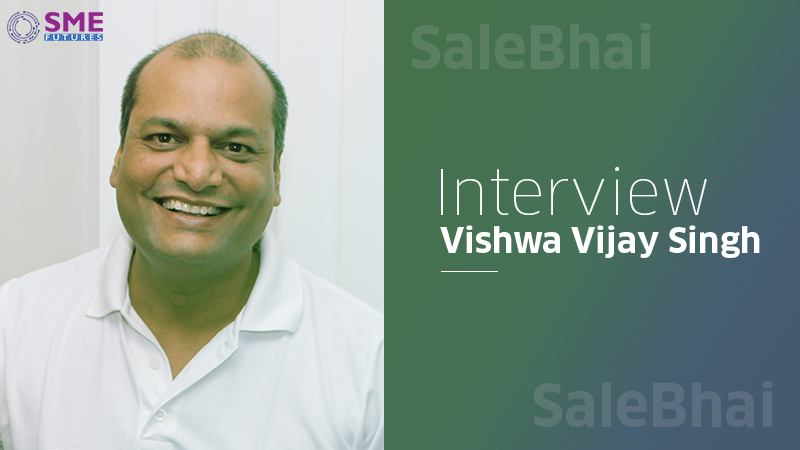SaleBhai is an online marketplace for speciality foods, dry fruits, paintings, handicrafts, chocolates, herbal products and puja items from across India. The company has filed a draft prospectus with the Bombay Stock Exchange (BSE) to list its shares on the exchange company’s small and medium enterprise platform. The company is looking to raise about Rs 23.73 crore through a fixed-price offer at Rs 105 per share, according to reports. The company claims to be the first business-to-consumer e-commerce start-up firm to file for an SME IPO. SaleBhai has received the BSE approval for listing on the SME platform.
In an interaction with SME Futures, the co-founder and CEO of SaleBhai Vishwa Vijay Singh talks about its brand building strategy, empowering SME sellers and expansion plans.
How do you manage the competition?
Since we are the first to identify this gap and the community, we do not have any direct competition. But, we do have competition in specific categories, such as food and handicraft, but not in the category of the diaspora. What distinguishes us from the competition is that we put a lot of efforts to educate our customers about the products and the sellers. We do not sell in the catalogue model. Our range of products is exclusive.
Which customer communities do you serve?
We are probably the first e-commerce platform to have a defined customer base and defined market with the migrant community being our main customers. Our uniqueness — the product has to be extremely popular or has to be very unique — is our biggest USP.
What are your brand building strategies across cities?
We mainly focus on the migrant communities in Tier I and Tier II cities, which have shifted there from their home towns for better prospects in education, career or marriage. As such, our brand-building strategy includes appealing to their nostalgic emotions with our back-to-roots philosophy. The second ethos that our brand espouses is the discovery of unique regional products from each corner of India. We do this by engaging audiences and customers through several social media and marketing campaigns.
Also read: Look inwards and at peers to scale up and beyond challenges
What are the top sellers and what are your expansion plans?
Dry fruit sellers from Goa, Kashmir and Karnataka happen to be most popular on our platforms. We are planning to add another 100 sellers by the end of this financial year.
Share some insights on your SME sellers. How do you empower them?
Firstly, we bring on board sellers from interior regions who otherwise would not have been able to showcase their products to such a huge potential online customer base. Secondly, we bring out the story of their brand, journey and products in a comprehensive manner on our platform – something which no other website does in such detail. Thirdly, we promote their brand on social media and raise awareness about their products.
What are your top challenges and how do you overcome them?
Some of our initial challenges included making reputed sellers understand our point of view and migrate to online sales. They were quite reluctant in the beginning, since many of them had never bought things online, forget about selling online. Second, it was to make them realise that detailing will help them increase sales. In the beginning, getting data from them was a challenge, but with perseverance, we were able to overcome that. Also, how much capital to spend and how much to preserve is always a difficult question to answer.
Do you in any way facilitate entrepreneurs, especially women entrepreneurs?
A number of our sellers are first-generation entrepreneurs, which also include women entrepreneurs. We support and promote them just like we do others. In fact, we have even published and promoted a special Women’s Day blog post on these women entrepreneurs we are associated with.
SME IPOs continue to catch investors’ fancy these days. What’s your take on this?
There is a saying “the earlier you get into a company, the higher the returns”. Today’s SMEs are going to be big corporates tomorrow. Hence everyone wants to take advantage of this opportunity. Investors these days have a better understanding of opportunities in small companies.











